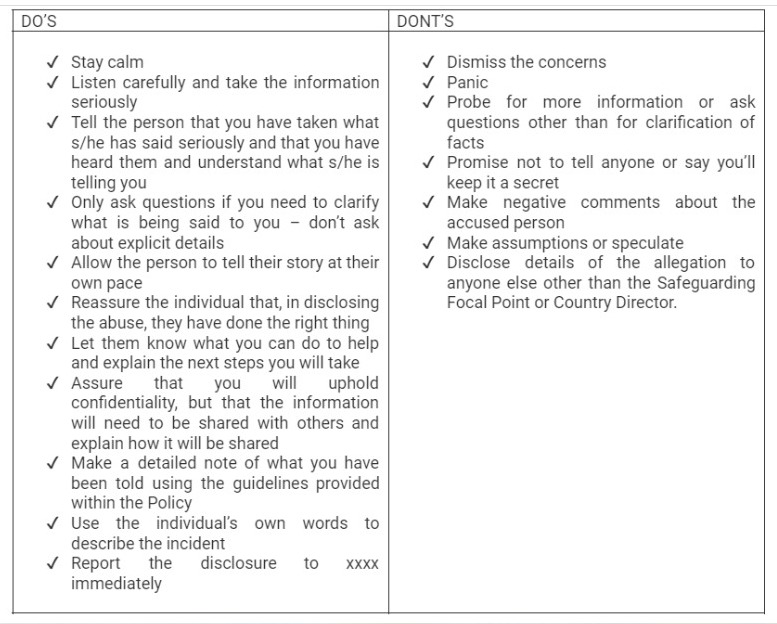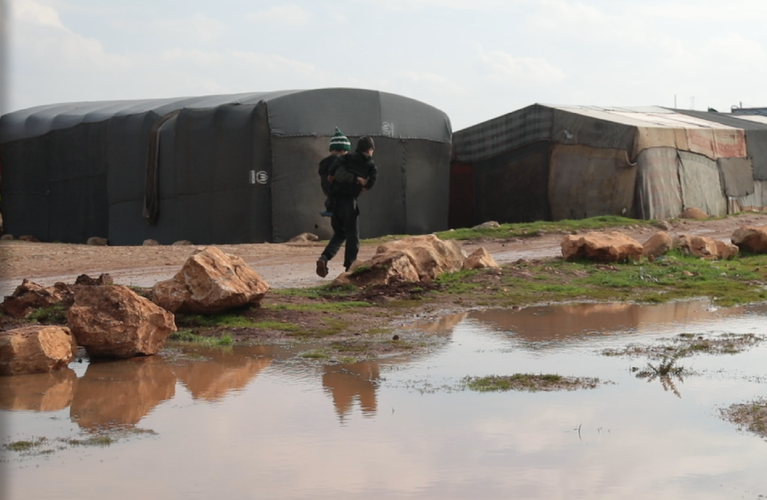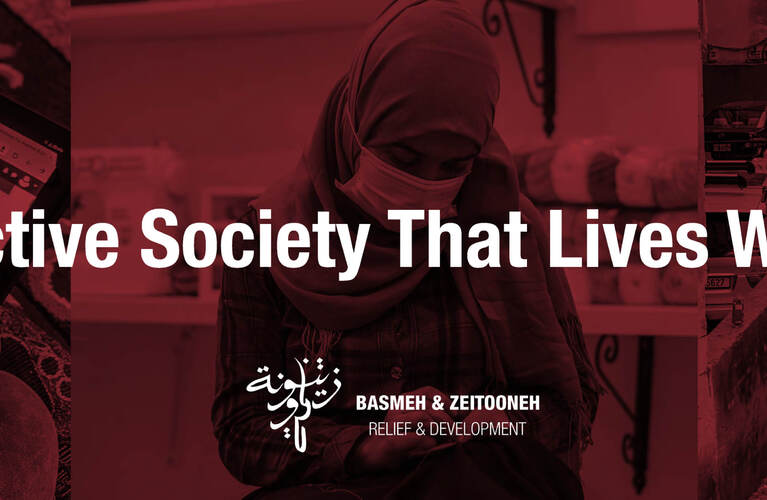Code of Conduct
All community members have the right to seek information about the services provided through Basmeh & Zeitooneh’s programs. In order to ensure the safety and the dignity of community and employees, staff members must adhere to the internal code of conduct and any transgression of its terms will result in penalizing measures. This commitment applies within and outside B&Z, B&Z values and principles are obligatory and don’t stop after working hours.
The contents of this policy are valid from the date of circulation and are applicable to all staff members and representatives (volunteers, consultants, board members, interns, and other third parties, etc.) at Basmeh & Zeitooneh, and apply to professional and personal conduct. In line with our commitment to safeguarding children and adults from harm, abuse, and exploitation, and to ensure compliance with the Inter-Agency Standing Committee (IASC) guidelines (See annex 1), Core Humanitarian Standards (CHS), and the Protection Principles according to the Sphere Handbook, the following must be adhered to:
Staff Competencies and Conduct
- Staff is obliged to report (mandatory reporting) through the internal reporting mechanism in case they heard, witnessed, or doubted any safeguarding concern/incident.
Interaction between staff and participants should adhere to the humanitarian principles of humanity, impartiality, neutrality, and independence; - Staff should refrain from being involved in acts that endanger their own safety and security as well as that of project participants and service seekers; “I will be responsible for my own health and safety and will be aware of situations where such risks may present, and respond to reduce such risks”
- Staff must avoid all forms of exploitation to achieve personal benefits (financial, social, emotional, or sexual)
- Staff should never close (or lock) doors during individual assessments and interviews, with the exception of individual support sessions at the Protection Department and evaluation sessions with the Quality Assurance Department.
- Staff should refrain from engaging in physical interaction with participants and colleagues, particularly with children.
- Gender balance should always be respected in teams conducting activities and monitoring visits with respect to cultural and social contexts.
- Employees at Basmeh & Zeitooneh refrain from using offensive or insulting language; use an appropriate tone of voice and show respect to personal boundaries;
- Staff undertake to apply non-violent and positive communication with participants; uphold the dignity, individual agency, and decision-making ability of community members;
- Staff undertake to respect diversity and not to discriminate on the grounds of race, religion, age, sex, disability, sexuality, or political beliefs while dealing with colleagues and when providing services or information to those seeking it;
- Staff shall provide services solely within their scope of work, and any intervention which falls outside an employee’s scope of work should be referred to the relevant department;
Privacy and confidentiality
- The staff ensures the safeguarding of personal information belonging to community members and affected groups that could put them at risk.
- Information relating to participants is confidential and should not be shared with a third party without the written consent of those involved, except in situations of threats to their safety, security, and well-being.
- Staff should respect the confidentiality of information shared by participants and refrain from discussing it with colleagues or other parties.
- When referring participants to service providers or to internal departments, staff must ensure that the purpose of the referral has been made clear to the service-seeker and must obtain consent. If the participant is underage or suffers from any disability that impairs his judgment, consent should be obtained from their caregivers following a best interest determination process.
- participants should be notified prior to the visit and given time to get ready if the visit is not scheduled.
Documentation of Activities
Staff must always provide clear information about the purpose of the documentation, and the potential use of their pictures (see annex 2) (social media, annual reports, internal reports) and obtain consent before taking photographs of participants during activities.
Safety and Security
- Staff should never close (or lock) doors during individual assessments and interviews, with the exception of individual support sessions at the Protection Department and evaluation sessions with the Quality Assurance Department.
- Staff identification cards should be visible at all times
Staff should always be wearing B&Z vests while conducting field visits - Line managers must be informed of the whereabouts of staff during field visits and should be made aware of any changes to the initial plan in order to ensure the safety of staff.
- Monitoring visit results should be communicated to participants and alternative options be provided to the household.
- Staff members should refrain from discussing details about their personal history with the participants and limit the scope of the conversation to the purpose of the visit.
Annex 1: IASC Six Core Principles Relating to Sexual Exploitation and Abuse
- Sexual exploitation and abuse by humanitarian workers constitute acts of gross misconduct and are therefore grounds for termination of employment.
- Sexual activity with children (persons under the age of 18) is prohibited regardless of the age of majority or age of consent locally. Mistaken belief in the age of a child is not a defense.
- Exchange of money, employment, goods, or services for sex, including sexual favors or other forms of humiliating, degrading, or exploitative behavior is prohibited. This includes the exchange of assistance that is due to participants.
- Any sexual relationship between those providing humanitarian assistance and protection and a person benefitting from such humanitarian assistance and protection that involves improper use of rank or position is prohibited. Such relationships undermine the credibility and integrity of humanitarian aid work.
- Where a humanitarian worker develops concerns or suspicions regarding sexual abuse or exploitation by a fellow worker, whether in the same agency or not, s/he must report such concerns via established agency reporting mechanisms.
- Humanitarian workers are obliged to create and maintain an environment that prevents sexual exploitation and abuse and promotes the implementation of their codes of conduct. Managers at all levels have a particular responsibility to support and develop systems that maintain this environment.
Annex 2: DÓCHAS CODE OF CONDUCT ON IMAGES AND MESSAGES
The Code of Conduct’s guiding principles stipulates that “choices of images and messages will be made based on the paramount principles of:
- Respect for the dignity of the people concerned;
- Belief in the equality of all people;
- Acceptance of the need to promote fairness, solidarity, and justice.
Accordingly, in all our communications and where practical and reasonable within the need to reflect reality, we strive to:
- Choose images and related messages based on values of respect equality, solidarity, and justice;
- Truthfully represent any image or depicted situation both in its immediate and in its wider context so as to improve public understanding of the realities and complexities of development;
- Avoid images and messages that potentially stereotype, sensationalize, or discriminate against people, situations, or places;
- Use images, messages, and case studies with the full understanding, participation, and permission of the subjects (or subjects’ parents/guardian);
- Ensure those whose situation is being represented have the opportunity to communicate their stories themselves;
- Establish and record whether the subjects wish to be named or identifiable and always act accordingly;
- Conform to the highest standards in relation to human rights and protection of the vulnerable people.
Annex 3: Guidelines when receiving a concern



